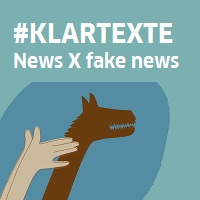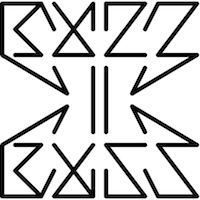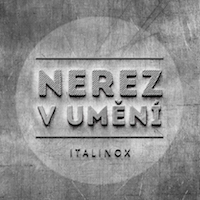
Ztohoven: Things can change!

The situation around art group Ztohoven has turned oppressive again. The gentlemen have received a complaint. The artists vomit. Read our interview. Carefully, to the very bottom.
Would you introduce Ztohoven briefly?
Sometimes we are introduced as a guerrilla group, but such groups usually have a hierarchical structure. We are rather a platform of several people who work together on a particular project. Many different people have been involved in the group already; recently there are some 12 people or more who are participating indirectly. We have no leader and we function on the principle of half-directed improvisation. In the beginning we have no idea how the project is going to turn out. We derive from interaction among us and interaction between us and the surrounding reality. The more people the more ideas.
What did you do so far?
We did four projects, it all started in 2003. The first ones were Question mark above the Prague castle and Raping of subconscious, which was an occupation of citylights in the metro. The Media reality followed, we imitated an explosion on live television. The recent project is Citizen K. The individual projects are not independent, however. Each project arises from a set of questions that the previous one exposed.
We were anonymous in the beginning of Citizen K, nobody knew who we were. But since we were already prosecuted because of the previous project, Media reality, we were bugged by the police and our identity has been revealed. That’s how we came to the topic of snooping.
Could you tell us more about your initial projects?
The question mark above the Castle was back in 2003. It was in the last months of Havel in the presidential office and there was a neon heart hanging above the Castle. We felt that a question mark would much better express those times, so we covered half of the heart. The cops came and wanted to intervene, but in that moment, Dostal, the former minister of culture, happened to be walking by and he started asking what was going on. Then he called Havel directly and asked him about his opinion. Havel said that if this was supposed to spark a reason for a general discussion about the nature of the public sphere,then, it’s ok.
Back then we were not calling ourselves Ztohoven yet. The media resonance was quite impressive however, so we came out with a name Ztohoven and started thinking about a new project. The question mark became typical for us – it’s contained in everything we do, even though sometimes not explicitly.
In Britain, for example, the topic of cameras spying on you from every corner became much discussed lately. Do you find important what is going on abroad in this field?
Our activities are local and their impulse is coming out from what we find annoying around here. We do not follow things that other people do. We are concerned with the specific conditions of this country. Afterwards, we began to find out that people in other countries are concerned with the same stuff as we are.
It is not only about art. While working on Citizen K we found out thatmany people were concerned with the same things, people such as Kafka, Zamjatin, Čapek… They do not inspire us, though.
Why do you think it is important not to be known by your names?
We do not want to become celebrities. Only a few people know who we actually are, even though they know us personally. We do not want to be known in the media, we want our projects to be pure and distinctive. We believe the message of the project itself is the most crucial part of it and we prefer this to relating our work to someone or something famous.
COLLECTION OF MOODS
Does Citizen K relate to other activities such as the scanning radars on airports, that is when they scan your iris?
Sure. It was not about IDs exclusively, but about the whole process of construction of your identity. How we cooperate on collection of information about ourselves, which can be used against us at any time. This big topic of the recent time is closely bound to Internet, shopping and consuming, still Citizen K and the concept of “IDing” itself is more of a symbol, behind which we find some problems and practices related to this issue.
In this country, an ID is directly connected to the state apparatus. We never had such a thing, until Hitler applied it. Then, during communism, it was a tool in the hands of SNB (State Police), which they used to annoy citizens. It is not an attack on the apparatus solely though… other modes of controlling arise, new dimensions, with memory of our faces, moods, wishes, our friends, and everything else about us. Such as Facebook.
THE WORST IS APATHY
Besides thinking, how can people resist?
We do not want to be the only ones doing such stuff. We would like to be an example of the freedom we all have, the freedom to do something. We would be happy if there were more crews doing things in the name of their philosophy. We want to tell the people that everything is up to them and the worst thing of all is apathy to what surrounds us. People are drunk with consumption and they trade it for their identity. We live in quite dynamic times, where the forms of power have changed a lot over the past few years. And thus, we have to change the forms of resistance.
Do you feel limited in your freedom?
We don’t feel limited that often, but when we do, we feel like doing a project. And then it turns out that whenever we try do create freely we get into situations where we are restricted in our freedom of doing.
ART IN THE POLICE ARCHIVES
But when you start working on your projects you must know already that it is an act against law.
That’s where we get to the point where the limits of art shift. In the past, the art was concentrated in spectacular saloons, but some of our predecessors started taking it out, home, to the streets, into the land. In Citizen K we are doing art in the stiff area of legal establishment, registry of persons etc. We are basically painting in the registries. We are trying to shift the limits even further; we don’t want to do exhibitions in galleries only. We are including our selves, our bodies and minds, into every project. We don’t want to speculate, we want to truly live with what we do.
How do you feel about the reactions to your work?
We get more interest from the police than from the public. The criminal investigation carries out the most sophisticated description of our works.
I thought the public, actually.
Nobody stops us on the street, obviously. We have an Internet forum www.ztohoven.com). People write there regularly, mostly they want to support us, they want to cooperate, they send us new subjects and ideas. Anyway, the most interesting reactions and questions we got from foreigners. It seems they take our work quite seriously abroad. They believe that we do the right thing that has its own respectful position in the life of a society. They want us to lecture about our work, they want to make TV documentaries about us, reportages…
ART OR RASCALITY
In the eyes of Czech public you are maybe a gang of guys doing fun and having kicks, while abroad your work is considered as art.
What we do is already long established abroad. People read about such activities in the media, they learn about them in school. The Czech people don’t think of our work as art that can raise questions, they think what we do is some form of a rascality. This is however not a critique of Czechs, this approach of the public is actually giving us more courage to carry on.
How about Citizen K, your latest project?
The project started two years ago. At first we didn’t know if we wanted the public to know about the project, if we wanted to engage them. Then we decided to do so. There was an exhibition in summer 2010. It wasn’t the end of the project, it was just one phase, where the public became involved.
There was silence in the media after the summer.
We were asked a couple of times to come to the criminal police to render our meaning. We went there but never said anything. Along with that, a part of our exhibition was confiscated. This was the part with several IDs sealed in a see through material. We complained about the confiscation, but they rejected it. Meanwhile the police destroyed the object. They cut out the IDs in order to do an analysis, and based on this, they started the prosecution.
What does it mean for you now?
In the beginning of January we started receiving complaints. We were accused of wasting foreign law. It went like this: “(The culprits) together agreed on drawing IDs, while submitting fake photos to the application that were probably adjusted and therefore did not accord with their real appearance (…) thus they caused a serious harm by misleading them.” So far they didn’t manage to prove this. After six months the police wasn’t able to find any new evidence, they have only worked with the journalists’ assertions and turned them into an actual complaint.
Nobody knows until now whose are the faces on the IDs, the only opinion is that of the journalists, but it is not based on any real evidence. They claim it was some form of morphing. Which means that our project still carries on, and is still asking the question, who are the people whose faces are on the IDs. This actually shows the great waste of the police’s time, instead of pursuing real criminals,they are annoying a group of twelve artists.
How do you fell about the whole situation?
The contact with the establishment is not as easy as it seems. After we received the papers, one of us vomited. You see, the image of power being somewhere out there, is false. The power is hidden in our bodies.
Do you have an idea what the collection of personal data might cause over few years?
We are no prophets but there were authors, writers, who already suggested were this trend might lead. Like those we mentioned above Zamjatin, Kafka, Huxley. History speaks for itself, anything that can be abused, will be abused. A deterrent example happened in the 30s during the World War Two. They started creating statistics about people’s ethnicity and nobody knew back then that it would serve as a basis for a massacre of millions of people. It started with a gentleman in a white suit measuring people’s skulls and ended in the concentration camps.
However the way of pursuing people is turning more sophisticated, the simplest model such as an ID can be abused against you. This casts a suspicious light on the contemporary ideology where the holders of power try to convince us that this all is for the sake of our welfare and security. At the same time another question arises: where can this all lead and who and why analizes the data that we happily provide about ourselves.
After our exhibition some changes have been implemented in the concept of IDs. I don’t know if our project was the inspiration, but the changes were much more likely pushed through by various lobbying groups. On one hand, this shows that a change is possible. On the other it is a real shame they have to be induced by interest groups going after profit. Unfortunately, the public is silent; even it is going to be a major concern in the near future.
translation> lasi





